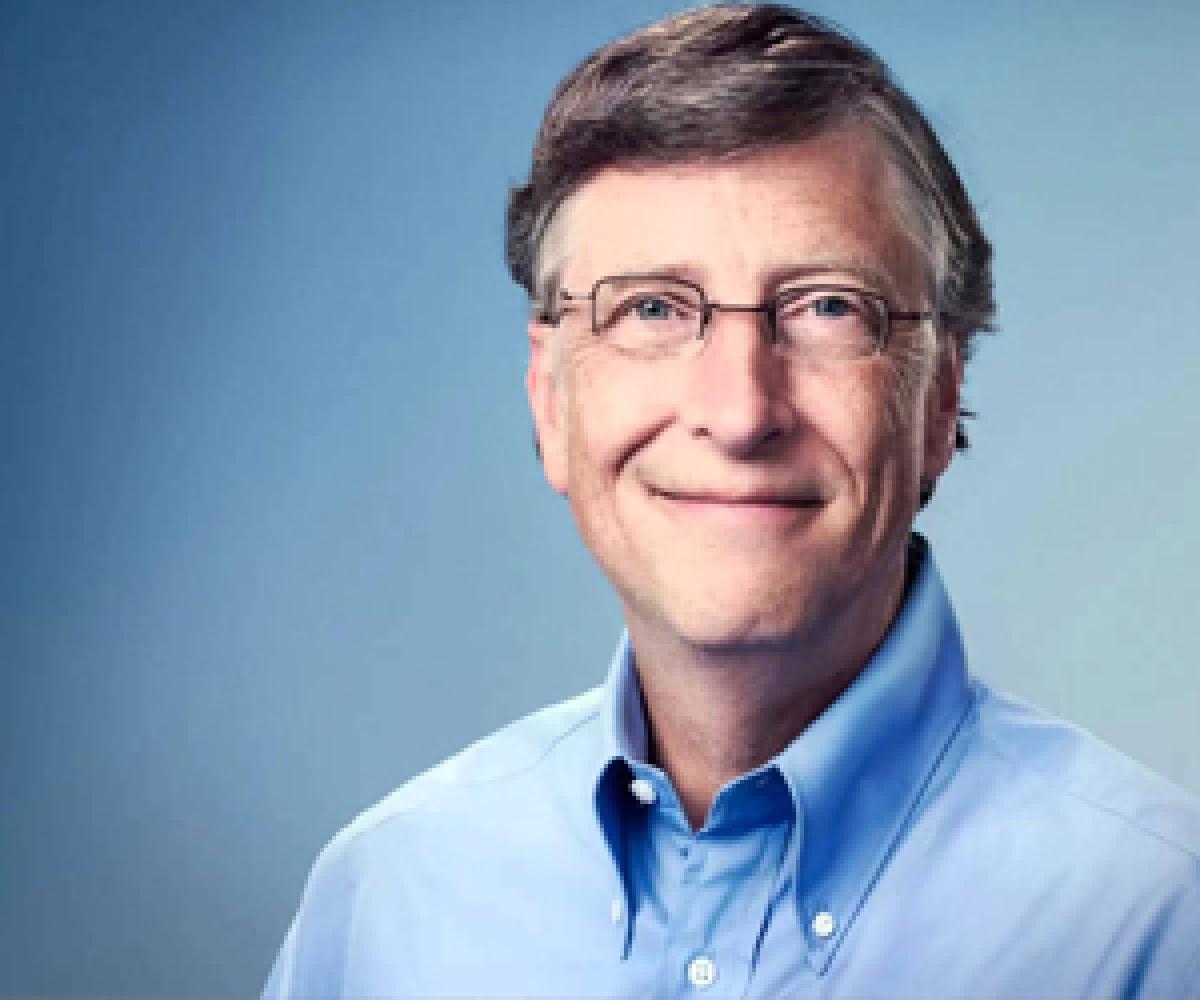Live
- Flamingo festival-2025 to be celebrated from Jan 18 to 20
- Rape case filed against BJP leader
- CM receives 1,090 grievances at ‘Jana Nayakudu’ programme
- JNTU signs MoU with ICT Academy to boost skills of students, faculty
- Fitness test for police recruitment postponed to Jan 11
- Security enhanced for AP CM Chandrababu Amidst Maoist Threats
- Odisha aims to emerge as leading aviation hub
- Illegal Activities: Differences among TDP leaders prevent officials from taking action
- All roads lead to AU Engineering College grounds!
- Mega Market in ruins after years of neglect; locals demand action
Just In

Microsoft co-founder and world\'s richest man Bill Gates recently released a list of best books to read this summer.
Microsoft co-founder and world's richest man Bill Gates recently released a list of best books to read this summer. An avid reader himself, Gates shared the list on his blog gatesnotes.com.
Bill Gates said that he loved these books and they, in his own words - "made me think in new ways, and kept me up reading long past when I should have gone to sleep."
Intrigued? Here are the five books Bill Gates thinks you should pick up this summer.
Seveneves
The first book in the list is 'Seveneves,' written by Neal Stephenson. Sharing his experience of reading a science fiction book after almost a decade, Gates wrote on his blog, "I hadn’t read any science fiction for a decade when a friend recommended this novel. I’m glad she did. The plot gets going in the first sentence, when the moon blows up. People figure out that in two years a cataclysmic meteor shower will wipe out all life on Earth, so the world unites on a plan to keep humanity going by launching as many spacecraft as possible into orbit. You might lose patience with all the information you’ll get about space flight — Stephenson, who lives in Seattle, has clearly done his research — but I loved the technical details. Seveneves inspired me to rekindle my sci-fi habit."
How Not to be Wrong
Jordan Ellenberg's 'How Not to be Wrong' is the second book on Bill Gates' list. As for how it made to the list, Gates wrote, "Ellenberg, a mathematician and writer, explains how math plays into our daily lives without our even knowing it. Each chapter starts with a subject that seems fairly straightforward — electoral politics, say, or the Massachusetts lottery — and then uses it as a jumping-off point to talk about the math involved. In some places the math gets quite complicated, but he always wraps things up by making sure you’re still with him. The book’s larger point is, as Ellenberg writes, “to do mathematics is to be, at once, touched by fire and bound by reason” — and that there are ways in which we’re all doing math, all the time."
The Vital Question
The third book to on Bill Gates' must-read list is 'The Vital Question' by Nick Lane. "Nick is one of those original thinkers who make you say: More people should know about this guy’s work. He is trying to right a scientific wrong by getting people to fully appreciate the role that energy plays in all living things. He argues that we can only understand how life began, and how living things got so complex, by understanding how energy works. It’s not just theoretical; mitochondria (the power plants in our cells) could play a role in fighting cancer and malnutrition. Even if the details of Nick’s work turn out to be wrong, I suspect his focus on energy will be seen as an important contribution to our understanding of where we come from," wrote Gates about the book.
The Power to Compete
Ryoichi Mikitani and Hiroshi Mikitani's 'The Power to Compete' is another book Bill Gates wants you to read. Gates remarked about the book on his blog, "I have a soft spot for Japan that dates back three decades or so, when I first traveled there for Microsoft. Today, of course, Japan is intensely interesting to anyone who follows global economics. Why were its companies — the juggernauts of the 1980s — eclipsed by competitors in South Korea and China? And can they come back? Those questions are at the heart of this series of dialogues between Ryoichi, an economist who died in 2013, and his son Hiroshi, founder of the Internet company Rakuten. Although I don’t agree with everything in Hiroshi’s program, I think he has a number of good ideas. The Power to Compete is a smart look at the future of a fascinating country."
Sapiens: A Brief History of Humankind
'Sapiens: A Brief History of Humankind,' written by Noah Yuval Harari is the last (but certainly not the least) good book on Gates' list of favourites. This is a book both Bill Gates and his wife Melinda Gates read. "Both Melinda and I read this one, and it has sparked lots of great conversations at our dinner table. Harari takes on a daunting challenge: to tell the entire history of the human race in just 400 pages. He also writes about our species today and how artificial intelligence, genetic engineering, and other technologies will change us in the future. Although I found things to disagree with — especially Harari’s claim that humans were better off before we started farming — I would recommend Sapiens to anyone who’s interested in the history and future of our species," wrote Gates on his blog.
source: techgig

© 2024 Hyderabad Media House Limited/The Hans India. All rights reserved. Powered by hocalwire.com







